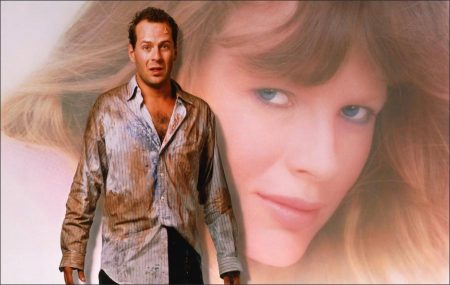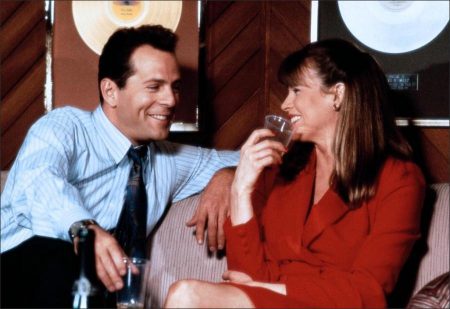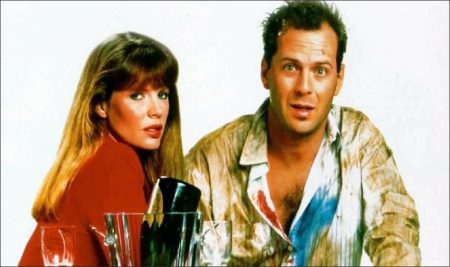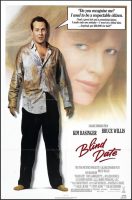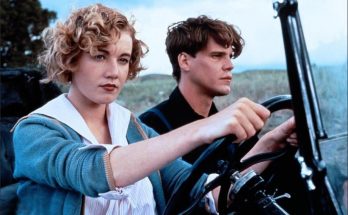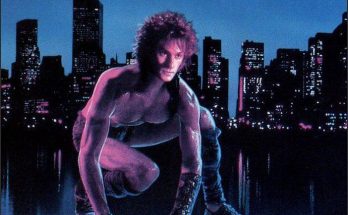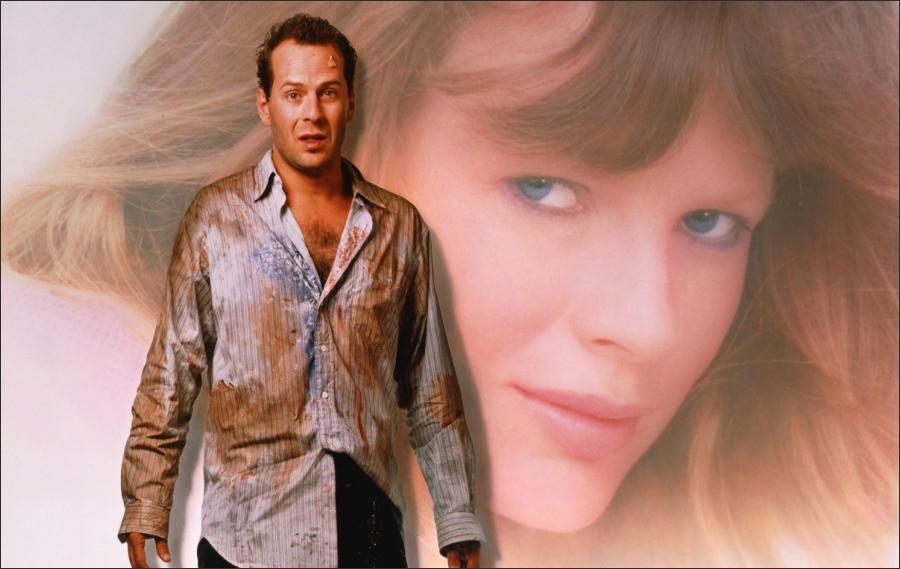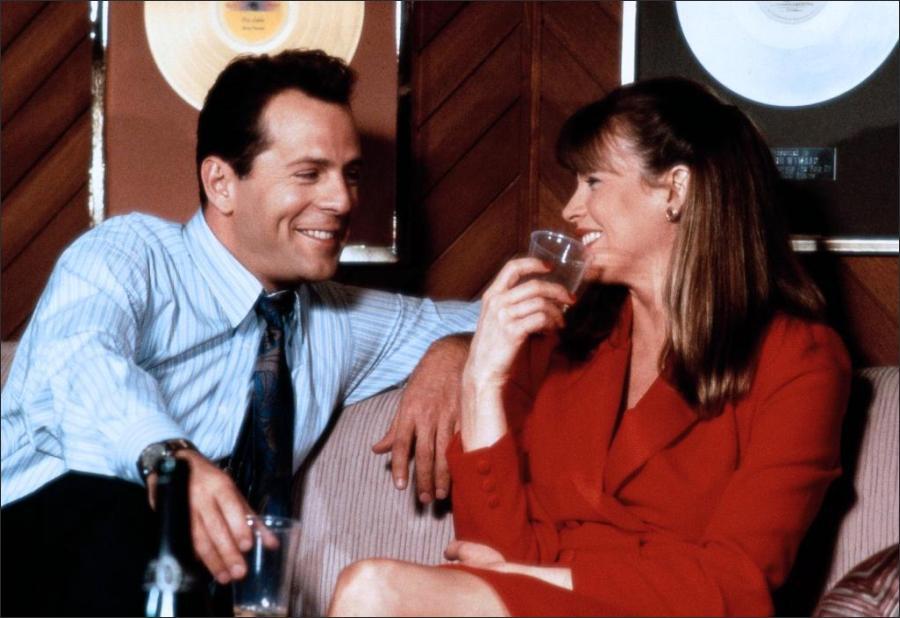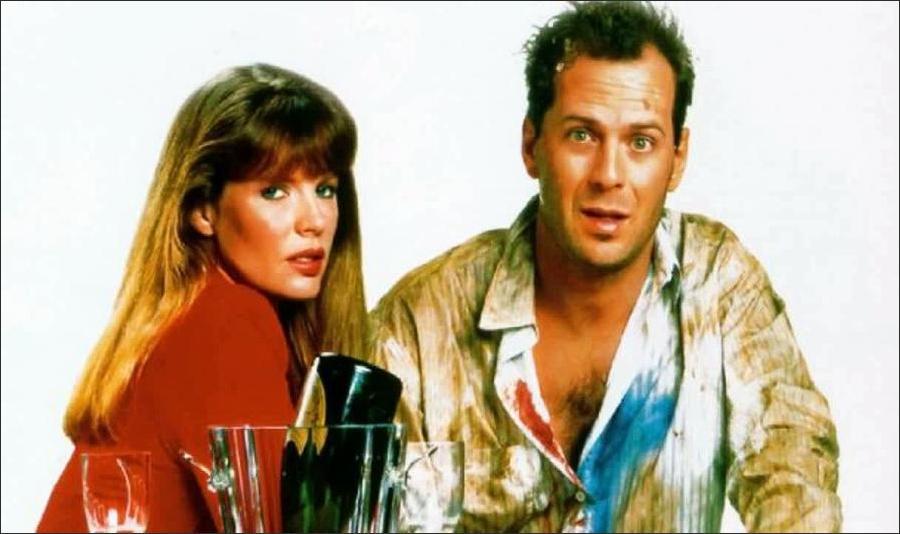Blind Date movie synopsis. Walter Davis is a workaholic. His attention is all to his work and very little to his personal life or appearance. Now he needs a date to take to his company’s business dinner with a new important Japanese client. His brother sets him up with his wife’s cousin Nadia, who is new in town and wants to socialize, but he was warned that if she gets drunk, she loses control and becomes wild. How will the date turn out – especially when they encounter Nadia’s ex-boyfriend David?
Blind Date is a 1987 romantic comedy film, directed by Blake Edwards and starring Bruce Willis, in his first leading film role, and Kim Basinger. Blind Date earned mostly negative reviews from critics, but was a financial success and opened at number one at the box office.
The film was originally intended for the recently married Madonna and Sean Penn, but both backed out after the project failed to attract a director. The screenplay was re-written and this draft was given to Edwards. He agreed to direct contingent he be allowed re-write that draft. The studio agreed. At that point, Penn dropped out and Madonna met with Edwards and she dropped out as well. The movie was re-cast with Willis and Basinger. Billy Vera & The Beaters appear in the bar scene, playing several songs.
Film Review for Blind Date
THE perfect gag, as orchestrated with supreme professionalism by Blake Edwards, is something that proceeds in stages. It has a beginning, a middle, an end, and maybe even a postscript or two. The beginning is the anticipatory stage, as when Bruce Willis, playing the man in ”Blind Date” who falls in love with a woman who should never drink, is seen with a hypodermic syringe, some whisky and a box of chocolates.
THE perfect gag, as orchestrated with supreme professionalism by Blake Edwards, is something that proceeds in stages. It has a beginning, a middle, an end, and maybe even a postscript or two. The beginning is the anticipatory stage, as when Bruce Willis, playing the man in ”Blind Date” who falls in love with a woman who should never drink, is seen with a hypodermic syringe, some whisky and a box of chocolates. The middle comes when the chocolates are delivered, and the young woman’s mother soon remarks that her daughter seems to have eaten them all.
The end is the wild part, when the young woman, who by this time happens to be at her own wedding, goes out of control, which is something she has been doing to various degrees throughout this wickedly inventive farce. And the postscript, as with all the film’s better comic setups, is the satisfying sense that yet another funny routine has been built, timed and executed with clockwork precision. Mr. Edwards, whose films are as different as the dismal ”A Fine Mess” and the devastatingly funny ”S.O.B.,” can’t always be counted on to deliver the comic goods. But when he’s right on track, as he is in most of ”Blind Date,” he’s an unbeatable farceur.
”Blind Date,” which opens today at the National and other theaters, has a screenplay by Dale Launer, who wrote the equally witty and circuitously plotted ”Ruthless People.” Clearly, Mr. Launer is a formidable comic talent in his own right, and he and Mr. Edwards are well-matched. They have made ”Blind Date” a charming feat of gamesmanship, a film that repeatedly asks the questions ”can we top this?” and ”how much worse can things get?” The respective answers are always ”yes” and ”a lot.”
As the title suggests, the film is about a blind date that goes awry, but nothing proceeds in the ways that might be expected. The man is the overworked Walter Davis (Mr. Willis), an ”assistant portfolio assessor” at a financial firm who needs to take the right woman to an important company dinner. His brother arranges an introduction to Nadia Gates (Kim Basinger), who’s a knockout and seems very nice.
Speaking shyly, wearing the kind of girlish hairdo Diane Keaton perfected, and looking as demure as anyone could in a form-fitting red suit, Nadia seems too good to be true. Why, the smitten Walter asks her, does such a lovely creature even have a free evening? Bad question. The corporate dinner is for the benefit of a Japanese tycoon who has strict and traditional notions of womanly behavior.
And the film is shrewd enough to let Nadia wreck the dinner and ruin Walter’s career very early on, as a mere warmup to the ever-expanding mess that will follow. What does she do? Nothing stupid or vulgar, or else this would be comedy of a much lower order. She just disturbs a costly flower arrangement, delivers an impromptu lecture on California divorce law, and rips the pocket off one or two men’s suits. After this, all is pocket-ripping pandemonium.
Mr. Willis is set up mostly as a straight man, though he does eventually have the chance to offer some party-wrecking one-upsmanship of his own. But Miss Basinger has the chance to prove herself a delightful physical comedienne, with a fluid grace that’s most apparent when she’s falling apart or falling down. One of the more ingeniously staged scenes has her arguing sleepily with Mr. Willis as she lies in a bed that he has kicked, so it is now at a diagonal. Satin sheets and the downward angle make the bed just slippery enough for Miss Basinger to have to wriggle incessantly while she struggles to speak.
”Blind Date” is farce of a traditional and even old-fashioned sort, but Mr. Edwards’s complete enthusiasm for the form creates a comic style so avid that it’s slightly surreal. Every prop exists to hit, startle or flummox someone at an unexpected moment. A man (Nadia’s nasty ex-boyfriend, played by John Larroquette) drives through a pet shop and emerges, quite literally, with a monkey on his back. A butler displays a remarkable trick for coaxing a dog into its pen. And when a car plows into a flour warehouse there are great white billows in its wake, as if this were not a building but a gigantic bag. Comic possibilities are everywhere in ”Blind Date,” and the tireless Mr. Edwards leaves none of them unexploited.
Blind Date (1987)
Directed by: Blake Edwards
Starring: Kim Basinger, Bruce Willis, John Larroquette, William Daniels, George Coe, Mark Blum, Stephanie Faracy, Alice Hirson, Joyce Van Patten, Georgann Johnson
Screenplay by: Dale Launer
Production Design by: Rodger Maus
Cinematography by: Harry Stradling Jr.
Film Editing by: Robert Pergament
Costume Design by: Tracy Tynan
Set Decoration by: Carl Biddiscombe
Art Direction by: Peter Landsdown Smith
Music by: Henry Mancini
Distributed by: TriStar Pictures
Release Date: March 27, 1987
Views: 411
